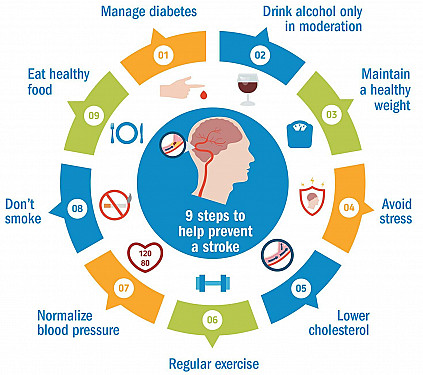Cholesterol guidelines update: controversy over heart risk calculator
It's been a topsy-turvy few days in the world of heart health and disease. Last week the American Heart Association and American College of Cardiology released new guidelines that upended previous recommendations for who should take a cholesterol-lowering statin. A few days later, two Harvard physicians challenged the accuracy of the calculator included in the guidelines, saying it would cause many people to unnecessarily take a statin. The story made headlines in The New York Times and prompted a closed-door review by the guidelines committee.
The controversy over the calculator should serve to improve this useful tool. I just hope it doesn't make people mistrust the guidelines, which I think will help prevent more heart attacks, strokes, and premature deaths than the earlier ones.
How the new guidelines change things
The previous guidelines recommended that individuals take a statin if the level of their harmful LDL cholesterol was above a certain number. The guidelines also recommended that many people get their LDL level down to 70 milligrams per deciliter (mg/dL), even if that meant taking a statin plus other medications, a strategy never proven to prevent heart attack or stroke.
The new guidelines no longer focus on "the numbers," but instead focus on the risk of heart disease or stroke risk. Taking a statin is now recommended for:
- anyone who has cardiovascular disease, including angina (chest pain with exercise or stress), a previous heart attack or stroke, or other related condition
- anyone with a very high level of harmful LDL cholesterol (generally an LDL above greater than 190 mg/dL)
- anyone with diabetes between the ages of 40 and 75 years
- anyone with a greater than 7.5% chance of having a heart attack or stroke or developing other form of cardiovascular disease in the next 10 years.
The calculator included in the guidelines aims to gauge an individual's chances of developing atherosclerotic cardiovascular disease (ASCVD) over the next 10 years. ASCVD includes arteriosclerotic heart disease (heart attack, stroke, the chest pain known as angina, or severely narrowed coronary arteries), peripheral artery disease, and stroke or transient ischemic attack. The calculator uses nine pieces of information—sex, age, race, total cholesterol, HDL cholesterol, systolic blood pressure, current treatment for high blood pressure, diagnosis of diabetes, smoking habit—to do this. The new guidelines recommend a statin for seemingly healthy people with a risk of 7.5% or higher.
Cardiologist Paul Ridker and epidemiologist Nancy Cook, both at Harvard Medical School, say that the calculator likely overestimates ASCVD risk for many people. Such overestimation would mean that millions of otherwise healthy people would take a statin long term with no health benefit, but the real possibility of experiencing harmful side effects.
Deciding who needs a statin
The controversy over the calculator doesn't affect anyone in categories 1, 2, or 3 above. For them, a significant amount of research has shown that the benefits of taking a statin far outweigh the risks. It does affect those who haven't yet developed any visible forms of ASCVD.
For example, what if your is LDL high, say 150 mg/dL, and the calculator says you have an 8% risk of developing ASCVD in the next 10 years. The new guidelines say "take a statin." But guidelines are just that—information to guide a decision, not to mandate it. The best approach for such individuals is to have a discussion with a trusted physician.
Some of my patients in this situation would prefer not to start taking a medication. I would counsel them to try a healthier eating pattern like a Mediterranean-style diet and exercise more. Lifestyle changes should always be a priority—even if a statin is needed. Others will prefer to start taking a statin, and I would go along with that decision.
One of the things the new guidelines have clarified is which statin to use. There are seven on the market: atorvastatin (generic, Lipitor), fluvastatin (generic, Lescol), lovastatin (generic, Mevacor), pitavastatin (Livalo), pravastatin (generic, Pravachol), rosuvastatin (Crestor), and simvastatin (generic, Zocor). The guidelines say that the ones with the best evidence for preventing heart attack and stroke are simvastatin, atorvastatin, and rosuvastatin.
Down the road, genetic testing may help better gauge an individual's ASCVD risk and refine which statin would work best. Until then, the new guidelines represent a step forward for prevention.
Disclaimer:
As a service to our readers, Harvard Health Publishing provides access to our library of archived content. Please note the date of last review or update on all articles.
No content on this site, regardless of date, should ever be used as a substitute for direct medical advice from your doctor or other qualified clinician.















.jpg)

